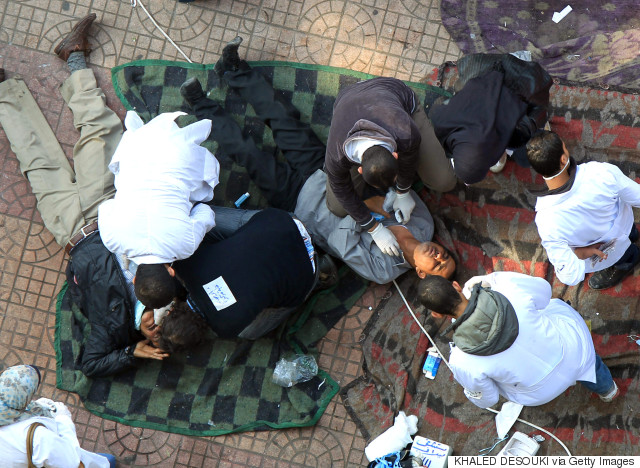![[UNVERIFIED CONTENT] CAIRO, EGYPT - FEBRUARY 8: An Egyptian protester waves the Egyptian flag during protests in Tahrir Square on February 8, 2011 in Cairo, Egypt. The eighteen-day uprising led to the resignation of Hosni Mubarak on February 11, 2011. (Photo by Jonathan Rashad)](https://img.huffingtonpost.com/asset/5cc16b4b240000130a51c271.jpeg?ops=scalefit_720_noupscale)
I lived in Egypt during the revolution but sadly, I was out of town during the 18 days. In November 2011, I created @TahrirSupplies, a Twitter account which coordinated the humanitarian needs for protesters in the square. The idea was simply to connect those who wanted to help others, despite their political differences.
I like the term "revolutionary moment." Maybe it'll catch on. I don't feel that it lasted longer than that. Moments differ in length, but moments have an ending, and while I can't remember when this one ended, I no longer feel that it really happened!
The idea was simply to connect those who wanted to help others, despite their political differences.
The movement back then meant change to me-- a chance to look outside our own life and small community and wish for the best for the lives of others. The idea of doing good --and being applauded for it-- drove the actions of many activists and humanitarians, and once that ball started rolling, we felt like we were unstoppable, or that we didn't know how to make it stop!
Everything had to be changed, every wrong had to be made right, and everything had to happen at the same time.
 Egyptian doctors treat protesters suffering from the effects of a teargas attack, at field hospital in Tahrir Square in Cairo on November 23, 2011. (Khaled Desouki/AFP/Getty Images)
Egyptian doctors treat protesters suffering from the effects of a teargas attack, at field hospital in Tahrir Square in Cairo on November 23, 2011. (Khaled Desouki/AFP/Getty Images)
I had never felt so alive, so in love, so overwhelmed with emotions and so true and dedicated to a cause as I did in those years.
We weren't allowing time for change before returning to the streets with new demands, and as this continued, people started becoming irritated by protesters or revolutionaries.
The revolution advocates started losing credibility as they kept changing their demands and raising the bar week after week, without any follow through on previously opened areas of discussion.
In any country, there is a very large portion of the population that resists change and doesn't believe they have anything to benefit from it. The instability of the revolutionary movement allowed those resistant to change to reclaim their place in the driver's seat-- driving the revolution away from course.
Despite everything I've just said: I had never felt so alive, so in love, so overwhelmed with emotions and so true and dedicated to a cause as I did in those years. I believed that we knew what we were doing and I was sure we were going somewhere good.
This post is part of a series focused on the Arab Spring, five years on. The Huffington Post invited people who felt like a part of that revolutionary moment to share their thoughts on what the movement means to them, then and now.